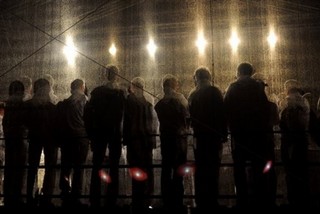In April 1791, events were set in motion that would have changed the history of sacred music forever. Wolfgang Amadeus Mozart (whose mild notoriety as a Freemason tends to eclipse the fact that he was a Roman Catholic) had inquired about the possibility of becoming an unpaid assistant to Leopold Hofmann, the aging and increasingly indisposed chapelmaster of St. Stephen's Cathedral in Vienna. Mozart's petition was approved by month's end and it was virtually assured that the famous composer's magnanimous gesture would translate, in due time, into a handsomely paid appointment as chapelmaster at St. Stephen's, a premier venue for sacred music in the music capital of the late 18th century.
Read Full Article »




